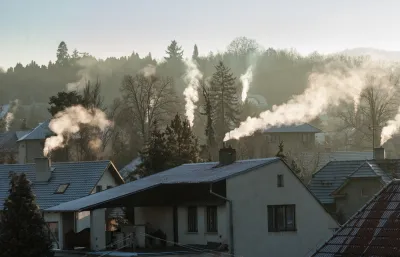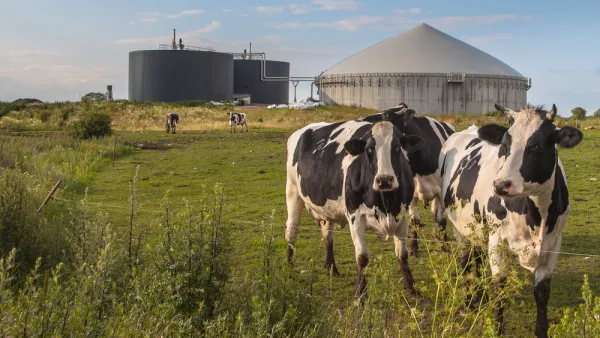The program is voluntary, providing incentives to replace older, uncertified wood stoves for cleaner replacements or alternatives. In addition to decreasing air pollution, it reduces emissions of a "super climate pollutant," black carbon.

The new program is the result of legislation by Sen. Ricardo Lara (D-Bell Gardens) signed by Gov. Jerry Brown on Oct. 11. Reducing wood smoke is essentially an environmental two-fer, simultaneously decreasing air pollution and mitigating climate change.
"The smoke from wood burning is made up of a complex mixture of gases and fine particles (also called particle pollution, particulate matter, or PM)," according to the U.S. Environmental Protection Agency.
Short-term exposures to particles (hours or days) can aggravate lung disease, causing asthma attacks and acute bronchitis, and may also increase susceptibility to respiratory infections. Long-term exposures (months or years) have been associated with problems such as reduced lung function and the development of chronic bronchitis—and even premature death.
"Changing out one dirty, inefficient wood stove is equivalent to taking five old diesel buses off the road, according to the U.S. Environmental Protection Agency," state's Sen. Lara's press release.
Black carbon = super pollutant
Wood smoke from home heaters will be the biggest source of human-caused black carbon by 2030, according to the California Air Resources Board," notes the SB 563 press release.
According to the Sept. 8 analysis, "Black carbon has a global warming potential 3200 times that of CO2 on a 20-year time scale." A Geophysical Research study in 2013 determined that it was the second most important heat-trapping pollutant after carbon dioxide.
SB 563 helps meet one of the goals set in Senator Lara's Super Pollutant Reduction Act of 2016. "Under Senate Bill 1383, California set targets to reduce methane, tropospheric ozone, hydrofluorocarbons and black carbon emissions, giving the state Air Resources Board until Jan. 1, 2018, to determine how those goals will be met," write Melody Gutierrez and Kurtis Alexander for the San Francisco Chronicle on September 20, 2016.
The measure requires a 50 percent reduction by 2030 in human-caused black carbon emissions compared with 2013 levels. Black carbon emerges primarily from wildfires, but also emissions from wood-burning fireplaces and diesel-fueled engines.
Funding for the wood stove replacements will come from the Greenhouse Gas Reduction Fund, i.e., revenues from cap-and-trade. CARB would direct funds to the regional air quality management districts and air pollution control districts, many of which already have operate replacement programs. According to the Sept. 8 legislative analysis of the bill, "these programs are typically oversubscribed and demand exceeds available funds."
Hat tip: David E. Garcia, Calif. State Senate Environmental Quality Committee consultant.

Analysis: Cybertruck Fatality Rate Far Exceeds That of Ford Pinto
The Tesla Cybertruck was recalled seven times last year.

National Parks Layoffs Will Cause Communities to Lose Billions
Thousands of essential park workers were laid off this week, just before the busy spring break season.

Retro-silient?: America’s First “Eco-burb,” The Woodlands Turns 50
A master-planned community north of Houston offers lessons on green infrastructure and resilient design, but falls short of its founder’s lofty affordability and walkability goals.

Test News Post 1
This is a summary

Analysis: Cybertruck Fatality Rate Far Exceeds That of Ford Pinto
The Tesla Cybertruck was recalled seven times last year.

Test News Headline 46
Test for the image on the front page.
Urban Design for Planners 1: Software Tools
This six-course series explores essential urban design concepts using open source software and equips planners with the tools they need to participate fully in the urban design process.
Planning for Universal Design
Learn the tools for implementing Universal Design in planning regulations.
EMC Planning Group, Inc.
Planetizen
Planetizen
Mpact (formerly Rail~Volution)
Great Falls Development Authority, Inc.
HUDs Office of Policy Development and Research
NYU Wagner Graduate School of Public Service



























